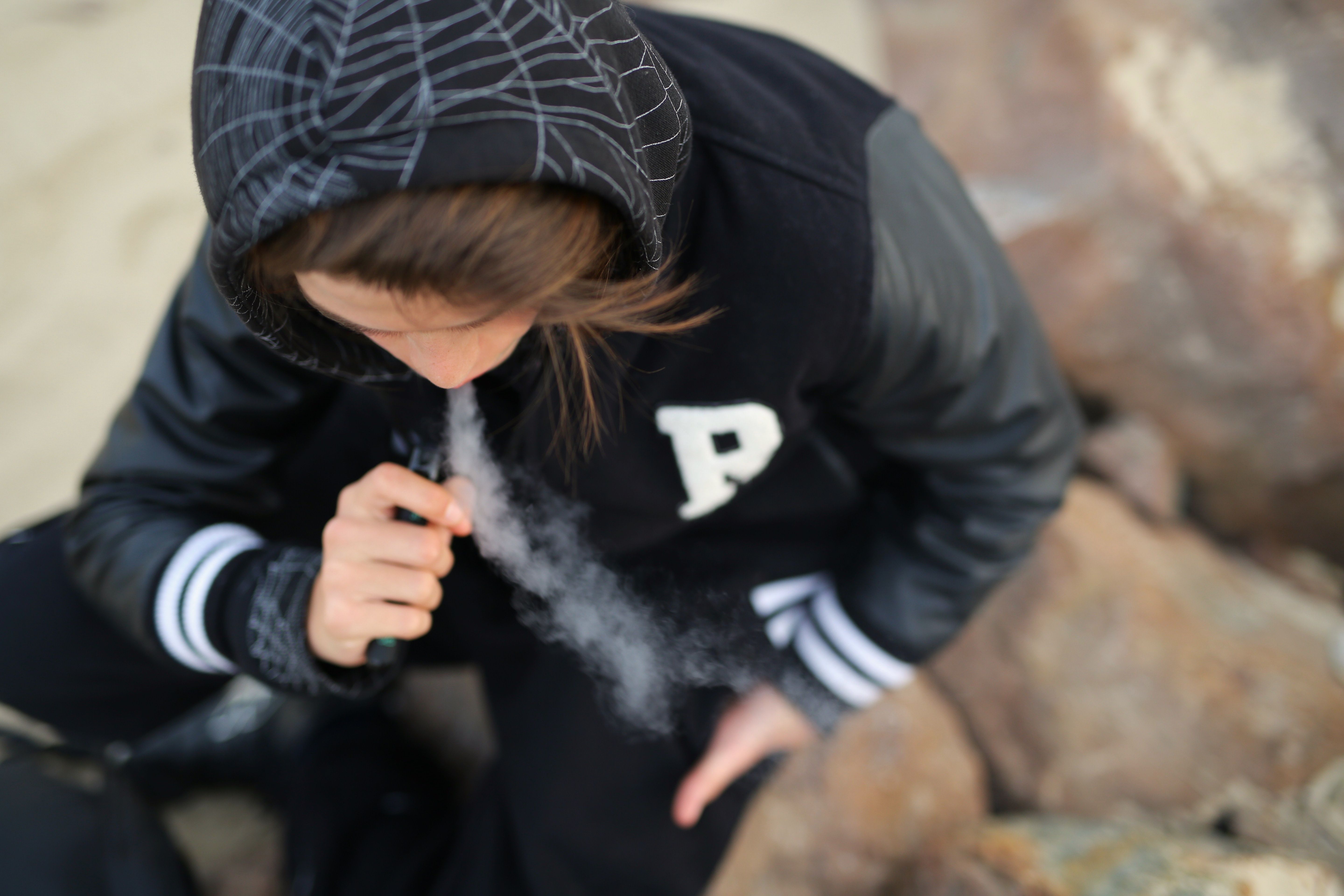Poll reveals how parents determine risks, punishments, and likelihood of vaping in their children
A recent survey from the C.S. Mott Children’s Hospital National Poll on Children’s Health revealed how addictive parents believe vaping is for children.
Teenager vaping | Image Credit: © mariiya - © mariiya - stock.adobe.com.

Over 90% of parents polled in a recent survey from the C.S. Mott Children’s Hospital National Poll on Children’s Health believe electronic cigarettes (e-cigarettes, vapes) are addictive. Of the 1325 parents surveyed in the national sample with at least 1 child aged 11 to 18 years, 80% feel their child is aware of health risks associated with vaping.
Chronic bronchitis, exacerbation of asthma, and irritation of the lungs are just some of the health risks mentioned in the poll. Though parents feel their children understand the potential repercussions of vaping, 16% would rather have their child vape than drink alcohol or use drugs, and 10% believe vaping is a better alternative to smoking traditional cigarettes.
Most parents felt they would know if their child was vaping, as 48% believe they would definitely know, while 40% believe they would probably know. If parents were to find out their child is vaping, 67% believe their child would tell them, 57% believe they would find vaping products in their child’s things, 47% believe they would detect vaping from its smell, and 37% believe they would find out from other people.
For parents of teens aged 15 to 18 years, 3% reported that their child is currently vaping, 13% reported their child has tried vaping in the past, and 30% said that their child’s classmates or friends vape.
For parents of children aged 11 to 14 years, 1% reported that their child is currently vaping, 3% suggest their child has tried vaping in the past, and 12% believe classmates and friends of their child vape.
Of the parents polled, 5% reported they themselves vape and that 18% have vaped in the past. According to the poll, parents who currently vape are more inclined to report that their child is vaping.
Approximately 50% of parents believe an appropriate punishmentfor their child vaping in school would be suspension from school (57%) or activities (22%). Some parents believe less-severe punishments such as detention (30%), warnings (12%), or no punishment at all (5%) would also be effective. Outside of the school setting, 30% of parents believe community service would be an appropriate punishment if their child was caught vaping in a public place by police. In the same scenario, 26% of parents suggest counseling or further education on vaping would benefit their child, 20% believe a warning would suffice, 12% suggest a fine, and 3% believe in probation for vaping. Some parents (9%) don’t support any type of official punishment or correctional service.
When it comes to reducing the number of children vaping overall, parents feel several actions could be beneficial. Of parents polled, 70% believe in increased law enforcement against selling vapes to minors, 57% feel an increased tax would deter users, 52% said reducing ads on social media can curb users, and 30% believe implementing warning labels on vaping products would be effective in reducing vaping among children.
The report showed findings from a nationally representative household survey conducted by Ipsos Public Affairs, LLC (Ipos). The survey was administered to a randomly selected, stratified group of parents who had at least one child aged 0 to 18 in the household (n = 2023). Adults were selected from Ipsos’s KnowledgePanel, which closely resembles the US population, according to the poll. Of panel members contacted to participate, the survey—administered in August 2022—featured a completion rate of 61%.
Reference
Are parents realistic about whether their child is vaping? National Poll on Children’s Health. March 20, 2023. Accessed March 24, 2023. https://mottpoll.org/reports/are-parents-realistic-about-whether-their-child-vaping